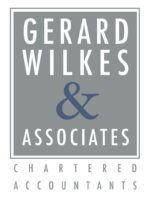What expenses are deductible in my SMSF?
Some of the most common questions about Self-Managed Super Funds are in relation to claiming deductions for expenses.
When considering if it is appropriate for your fund to pay an expense, it’s important to firstly make sure the payment is:
- Consistent with implementing the fund’s investment strategy
- Allowed for under the fund’s trust deed and superannuation legislation
Some SMSF expenses are tax deductible while others are not. To be tax deductible, the expenses must relate to your fund earning taxable (assessable) income. Expenses are not tax deductible if they are capital expenses, such as the cost of purchasing fund assets.
Some of the different types of SMSF expenses are:
- Operating expenses
- Investment-related expenses
- Tax-related expenses (incurred on income tax affairs)
- Legal expenses (including trust deed amendments)
- Statutory fees and levies
- Insurance premiums
- Collectables and personal use assets such as artwork
Operating expenses
Operating expenses incurred by an SMSF are mostly deductible. The exception is where they:
- Relate to gaining non-assessable income (such as exempt current pension income), or
- Are capital in nature.
The following are examples of the types of operating expenses that are typically deductible:
- Fund management and administration fees that trustees incur in the day-to-day carrying out of their obligations. For example, collecting and processing member contributions, preparing minutes etc.
- Audit fees. An SMSF is legally required to appoint an approved SMSF auditor to examine their fund’s operations each year to ensure compliance with super legislation
Investment-related SMSF expenses
The exact nature of the investment-related expenses is critical when determining deductibility.
Examples of deductible investment related expenses include:
- interest expenses
- ongoing management fees or retainers paid to investment advisers
- costs of servicing and managing an investment portfolio, such as bank fees, rental property expenses, brokerage fees
- fees paid to investment advisers, provided the fees are directly related to investments that earn assessable income for the SMSF does not amount to a new financial plan.
If the investment related advice covers other matters or relates in part to investments that do not produce assessable income, only a proportion of the fee is deductible.
Tax-related SMSF expenses
Deductions are allowed for expenses incurred in managing a SMSF’s tax affairs and complying with income tax laws such as:
- cost associated with preparing and lodging financial statements and annual returns with the ATO
- actuarial costs to determine the amount of tax-exempt income for any of their members.
If the trustees of the fund incur administrative penalties from the ATO for non-compliance, these expenses must not be paid by the fund. It’s also not legal for trustees to be reimbursed by the fund for payment of these penalties.
Legal expenses
Some legal expenses are covered by specific deduction provisions. For example, amending the fund’s trust deed so that it remains compliant with any changes to super legislation. Trust deed amendment costs incurred in establishing a trust, executing a new deed for an existing fund and amending a deed to enlarge or significantly alter the scope of the trust’s activities are generally not deductible. This is because they are capital in nature.
Legal expenses that are not covered by a specific provision are generally deductible under the general deduction provision. This is except when they are incurred in deriving non-assessable income or are capital, private or domestic in nature.
Statutory fees and levies
SMSFs must pay an annual ATO supervisory levy which is tax deductible.
SMSFs with a corporate trustee structure must also pay an initial Australian Securities and Investments Commission (ASIC) registration fee, as well as ongoing annual fees. These fees are tax deductible.
Insurance premiums
Insurance premiums the SMSF pays on behalf of members are tax deductible. SMSFs are legally entitled to take out the following types of insurance for their members:
- Life
- Total and permanent disability (TPD)
- Terminal illness
- Income protection
Other types of insurance (such as health insurance) can’t be taken out by SMSFs on behalf of their members and are therefore not deductible
Collectables and personal use asset expenses
Special rules apply to SMSF investments in collectable and personal use assets, such as artwork. These rules were introduced on 1 July 2011 to cover aspects such as storage and insurance.
Insurance costs for artwork and other collectables are deductible to the SMSF provided:
- the items are insured in the name of the fund within seven days of acquisition
- the receipt for the expense is in the name of the fund
You can’t, for example, insure the item as part of a trustee’s home and contents insurance.
Storage costs for artwork and collectables are also deductible to the fund. This is provided that items are stored in accordance with relevant superannuation industry regulations.
SMSF expenses that are not deductible
Some SMSF expenses are not tax deductible, including fines for non-compliance and expenses that are capital in nature.
For example, the costs incurred for courses and subscriptions that relate to activities which will only generate capital gains (such as shares). These costs have not been incurred in the administration, operation or management of the SMSF and are not linked to any of the fund’s taxable income activities. They are therefore not deductible.
Seminar-type expenses may also not be deductible if the expenditure does not have sufficient connection with assessable income or is an investment of capital to prepare for future investments.
Our team at Gerard Wilkes & Associates are here to help. If you have any questions or would like to discuss this article further, please contact us at https://www.wilkes.com.au/contact-us/ or call our office 07 5532 1733.




